The denouement to the 2020 Six Nations was a largely tepid affair. Wales and Scotland duked out a laborious encounter in dreadful conditions in Llanelli, while England didn’t quite fire as expected against Italy, but did just enough to claim the Championship after ‘Super Saturday’s’ final game saw France stir the emotions with some exquisite attacking play to stunt any Irish ambitions of going home with the spoils and a trophy.
Still, at least, in this most tortuous of years, the tournament was concluded. Every soul with any attachment to rugby will hope the 2021 tournament will be more straightforward. Here the The XV’s writers sum up how the countries have fared in this truncated tournament.
England
We could talk about England’s third Six Nations championship in five years under Eddie Jones, even if they did fluff their lines in Paris, but first we must pay a little homage to England’s second ever cap centurion in Rome. He has his detractors but everything that is good about Ben Youngs was encapsulated in his try at the start of the second half: his alacrity to scamper from the ruck, his perfect balance to step the full-back and speed of thought to seize the chance before anyone else even realised there was one.
The score bore a striking resemblance to his first-ever try in England colours in 2010 against Australia which set England on their way to a 21-20 win in Sydney, and heralded Youngs as a scrum-half with a sizeable international future.
Despite scoring two tries and picking up the man-of-the-match award in Rome, Youngs’ 100th performance for England wasn’t without glimpses of the muddled thinking which, on occasion, blights his game. Although he was hardly alone in that regard as England struggled collectively to impose themselves at the Stadio Olimpico – surely a hangover of the aborted Barbarians fixture the week before.
But if Youngs is to push beyond Jason Leonard’s total of 114 England caps and become the most capped England player of all time, then this crinkle will need to be ironed out, especially as Dan Robson and Alex Mitchell – are pawing the ground ready to take any opportunity Youngs cedes to them.
If Youngs can consistently acquire a state of flawless decision-making, then Eddie Jones’s pre-match comments that his scrum-half should aim for 150 caps isn’t so ludicrous. His physical abilities might wane over the next few seasons, but that quickness of mind needn’t ever dry up.
As for England, they have depths of reserve that should frighten every other side, bar France, and the fact they could canter to a championship missing Courtney Lawes and Manu Tuilagi, without even having to field the best player in the Championship, Jack Willis, or outstanding scrum-half, Ben Spencer, shows you what riches Eddie Jones has at his disposal. JZ
Star man: Maro Itoje – The Saracen continues to mature and is a genuine candidate for Lions captain next summer. A force of nature.
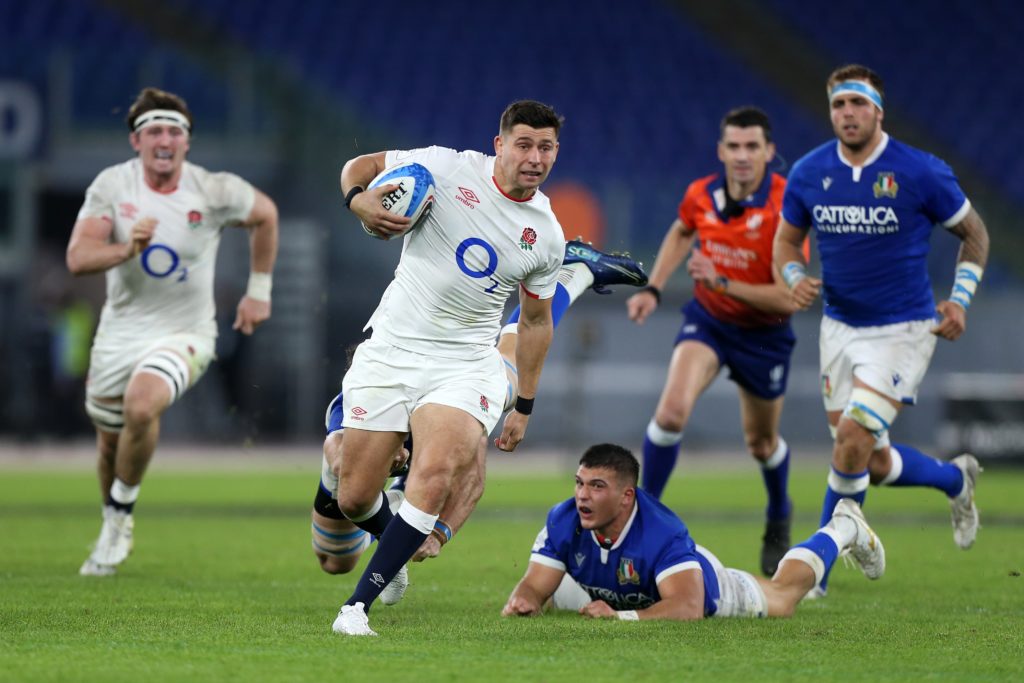
France
Jacques Brunel was always seen as a bumbling, yet well-meaning caretaker coach. A stooge for Bernard Laporte, in the wake of Guy Noves’ acrimonious departure, but Fabien Galthie is clearly his own man.
When he picked the squad, it had an average age of 24 and less than 10 caps a man – some thought he had lost his mind to dispatch the celebrated trio Louis Picamoles, Yoann Huget and Guilhem Guirado – but after thrusting out their chests and dispatching England at the Stade de France, those fears dissipated to be replaced with a renewed sense of pride after a decade of underachievement.
Fundamental to France’s improvement is having a pair of gifted half-backs. Antoine Dupont has already been anointed world-class, and Romain Ntamack, is on his way there. Having a 10 who can nail his kicks is a novelty for France as his 57 points during the tournament show.
Toulon’s Charles Ollivon has been a steady hand at captain and were it not for Mohamed Haouas’ untimely rush of blood to the head, after getting sent off against Scotland, we would likely have been toasting a first French Grande Chelem since 2008.
Their renaissance has re-energised French rugby with a World Cup on the horizon and with the individual brilliance of Virimi Vakatawa, Gael Fickou and Teddy Thomas out wide, they are winning friends all over the rugby world. A warm welcome back to our Gallic friends. OJ
Star man: Antoine Dupont – The Toulouse half-back has been in scintillating form with the ball-in-hand, where is broken-field running and invention have left neutrals open-mouthed
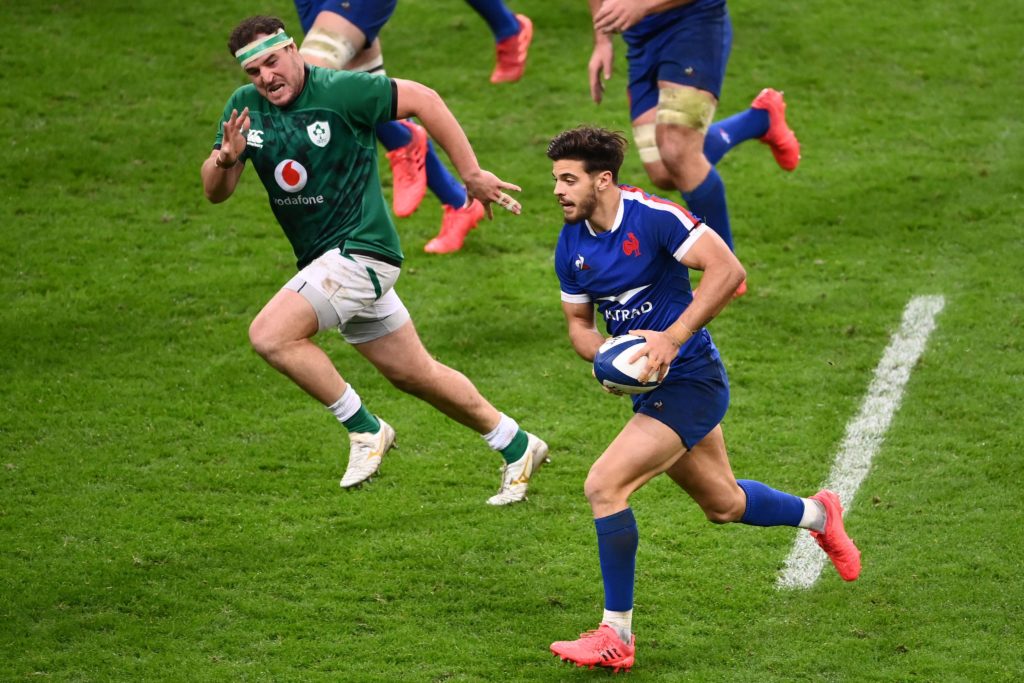
Ireland
You always felt Andy Farrell was up against it in taking over from Joe Schmidt, stepping out from the shadow of a perennially successful head coach whose formulaic approach was cemented deeper in the Irish squad than the Mariana Trench.
This was a universally acclaimed specialist coach taking on the top gig for the first time. And his baptism was trying. An unconvincing win over Scotland and a more satisfying castling of the Welsh followed by the physical evisceration by England at Twickenham.
Was Farrell merely an extension of the regimented Schmidt mantra? Was he placing too much trust in the old guard, especially in captain Johnny Sexton? Those questions remain unanswered.
In the cold light of day, three wins and third place in the Six Nations is a reasonable if not spectacular return. More important right now is that Farrell is beginning to shape Ireland his way, to steer gradually from the tactics favoured by Schmidt and to blood new talent.
He is best known as a defensive mastermind, but Ireland scored more tries and made more metres in the championship than anyone else. England and France were too muscular and too clinical for them at this stage in their transition, but they can still wound the big beasts with their patient, relentless phases.
They remain highly disciplined, extremely good at holding on to ball – a hallmark of the Schmidt era – and adept at pinching it. Nobody conceded fewer turnovers or won more. Nobody had a better penalty count.
Farrell has an insane wealth of riches at back-row, and Dan Leavy’s return from a dreadful injury lay-off only enhances his options. Under the new breakdown applications, Ireland are in good shape to prosper.
Hugo Keenan is a terrific find in the backline, and James Lowe will bring riveting explosiveness now he has fulfilled residency criteria. Farrell could do with John Cooney rediscovering his scintillating pre-lockdown form and a fit and motoring Joey Carbery to really challenge the entrenched Conor Murray-Sexton half-back pairing as his evolution continues. JL
Star man: Bundee Aki – the Connacht man has become an immovable object in the Farrell midfield and his raw power in the tackle and running ability is a perfect foil for Ringrose or Henshaw.
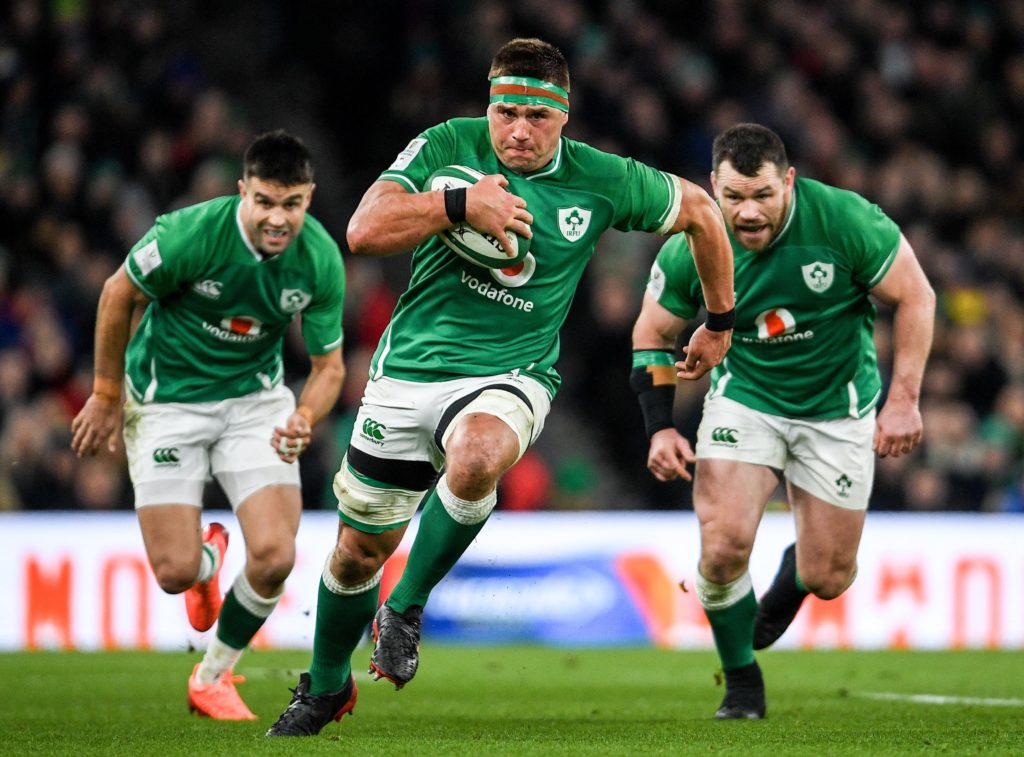
Scotland
Scotland and Gregor Townsend deserve great credit for heeding the lessons of a heinous 2019 and addressing the ugly flaws in their blueprint. They have emerged cannier and nastier in 2020, a side that haemorrhaged tries transformed into a belligerent unit with a lust for defence.
Scotland conceded the fewest points and tries in the Championship. Not since the Five Nations became Six in 2000 have they bettered their tally of just 59 points shipped. Last year, they lost more than double that haul; in 2018 they had 128 stuck on them and leaked 118 the season before.
Steve Tandy, their new defence specialist, has instilled a ferocious system, aided by the overall shift in Scotland’s style from the ambitious but ultimately doomed “fastest rugby in the world”.
That yielded the derailing of the swaggering French, a win to nil in Italy and a glorious first triumph on Welsh soil for nearly two decades. The near misses against Ireland – Stuart Hogg’s fumble over the try line – and England – a pig of a game in a deluge that would have sent Noah scurrying for dry land – even leave a lingering sense of what might have been.
Scotland can still do things that make you thump your head against a wall, but their leaders are roaring to the forefront. Captain Hogg, happier than ever, is a double champion with Exeter and making better and better decisions on the field. Jamie Ritchie has been colossal, the fit-again Rory Sutherland the best loose-head in the tournament, Chris Harris a bulwark in defence and Adam Hastings maturing into a viable rival to Finn Russell. Newly eligible Oli Kebble and Duhan van der Merwe will be terrific weapons and add significantly to an ever-deepening pool of talent.
Scotland’s high-tempo fare of old must not be sacrificed entirely – seven tries scored in five games is a modest return – but the balance will come and the elan will shine through again in time. How can it not with Russell at fly-half and a huge array of weaponry outside him?
Backing up that Llanelli triumph on the road in the autumn and spring is the crucial next phase. Injuries to Russell and Hastings may stretch them in the weeks ahead. But three victories, a rampant defence, and a first away win against anyone bar Italy in a decade? After the horrors of 2019, it’s a rousing, hope-filled return. JL
Star man: Rory Sutherland – Given the prop was in a wheelchair not so long ago, Sutherland’s technical filleting of opposition front-rows has been nothing short of inspirational.
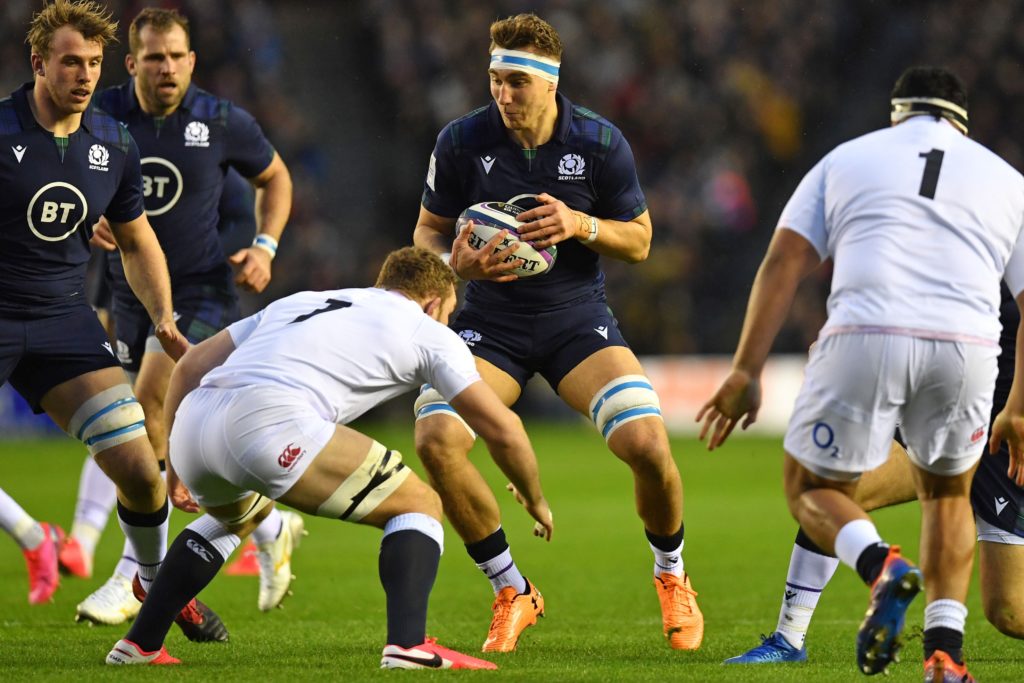
Wales
Where do you start? Well, with four losses. It’s Wales’ worst Six Nations return since 2007. The expected transition phase – with the spine of the side having been used to Warren Gatland’s bludgeon approach – was always going to take time with Wayne Pivac’s wider, offloading game, but it’s been a year of regression and, in truth, we are no clearer what Wales’ new style is because the defence has been shredded, the attacking game has lacked fluency and players don’t appear to have full confidence in their roles on field.
The regional game, battered by the chaos that the pandemic has caused, is a root cause. None of them can reach the rarefied air of knockout European rugby and this has led to Wales looking undercooked and struggling to live with side’s who play at a far higher intensity, week-after week. It’s an endemic problem.
Missing key men like Jonathan Davies, Gareth Anscombe, Liam Williams Josh Navidi and yesterday, against Scotland, Justin Tipuric hasn’t helped with their cohesiveness and even the superlative Taulupe Faletau has struggled to match his usual high standards throughout the campaign. The longer the winless run goes on, the louder calls will be for new blood, into what has been a largely settled squad. Indeed, the tub-thumping debut of Shane Lewis-Hughes shows there is talent beyond the recognised status-quo.
What can give Pivac hope is that the losing margins against his traditional rivals are not unsurmountable; 10 (Ireland), 4 (France), 4 (Scotland), 3 (England). That’s not wholesale surgery, or a chasm, that’s fixable, but Pivac needs time, patience and a little luck. There is much to do. OJ
Star man: Justin Tipuric rarely has a bad game for Wales and his workmate, link-play and defensive steel are essential to keeping Wales ticking over. He scored a sumptuous try against England.
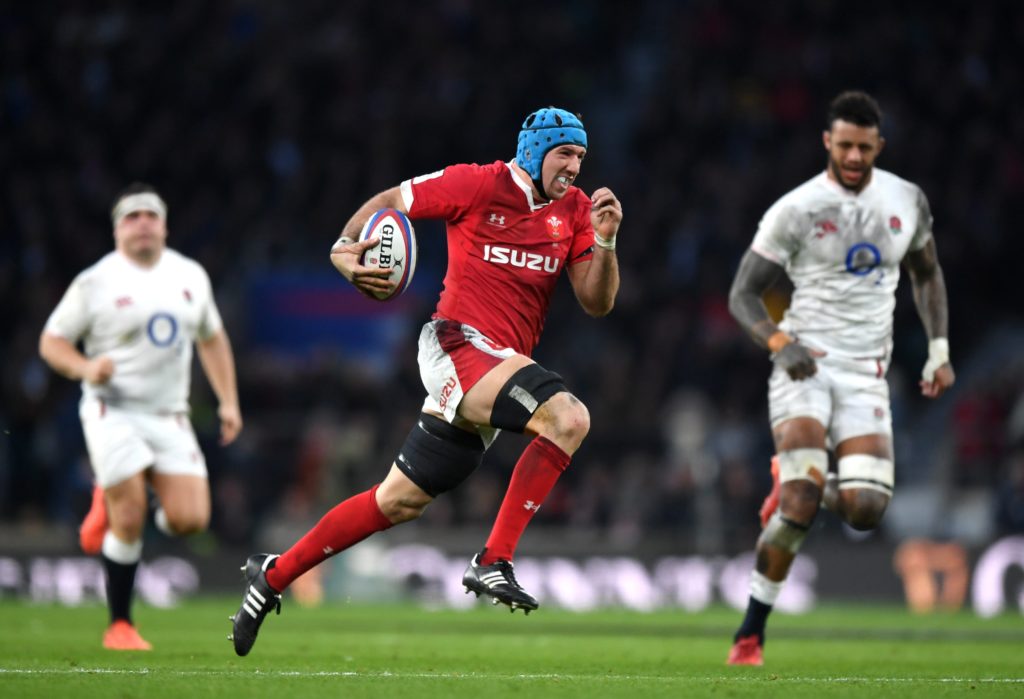
Italy
For far too long in the Six Nations, Italy have saved their most passionate displays for the singing of their anthem. But against England they had plenty in reserve for the 80 minutes as well.
Scrum-half Marcello Violi played the role of a nightclub-queue nightmare, rankling and antagonising England whenever he could, treading the tightrope of gamesmanship. He got under England’s skin. So too did flanker Sebastien Negri, tighthead Giosuè Zilocchi and lock Niccolò Cannone.
The result may not ultimately have gone their way – for the 27th Six Nations match in a row Italy ended up on the losing side – but had they scored on 33 minutes from a driving line-out (which England held up over the line) they would surely have converted and led England in the match, something only France have managed to do during the 2020 Six Nations with their 24-17 victory back in February.
Franco Smith has brought pragmatism and steel back to Italy’s play. A first victory since 2015 still seems some way off, but it’s something to hang onto. JZ
Star man: Jake Polledri – The Bristolian, who now runs out in Gloucester colours is force of nature as a ball-carrier and has become Italy’s go-to player in the wake of Sergio Parisse’s retirement.
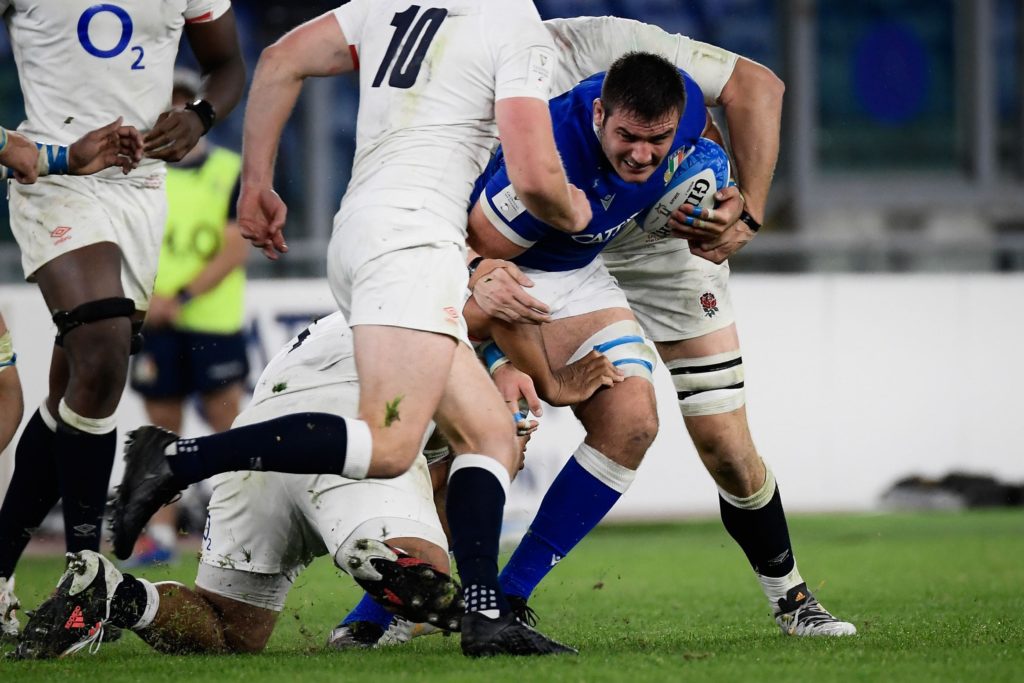
If you’ve enjoyed this article, please share it with friends or on social media. We rely solely on new subscribers to fund high-quality journalism and appreciate you sharing this so we can continue to grow, produce more quality content and support our writers.



Comments
Join free and tell us what you really think!
Sign up for free